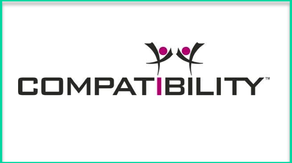
Mentor Connect® is being hailed by many as a “breakthrough” technology. Much like an online dating site, students and mentors each complete a personal profile and respond to sets of questions that are used to make predictions for “best fit.” The game-changer in the Mentor Connect® technology is that, unlike other mentoring programs, each mentoring program creates and learns from its own matching algorithms.
Co-founder and Chief Research & Product Officer, Dr. Kim Rubenstein, explains, “There are significant non-academic factors related to student success that, if accessed, can be used to help support and move students towards graduation and future employment. In fact, research such as the Gallup Purdue Index has demonstrated to the world that it’s not about where you go to school, but how you experience the school you attend.”
The technology, which makes predictions about the strongest pairings or groupings, can also identify which students are most likely to persist and graduate. According to Co-founder and CEO, Andrea Meltzer, “Mentor Connect® coincides with a growing trend where state funding of colleges and universities is now being based on completion rates instead of enrollment numbers.” Meltzer goes on to say that “As the stakes are raised for schools, the unique tools and data generated by Mentor Connect® can help institutions of higher education to improve and substantiate their efforts towards increasing retention and graduation rates.”
The launch of the platform coincides with First Lady Michelle Obama’s “Reach Higher” Initiative, whose aim is to help students take charge of their futures, primarily through strong mentor experiences.
Dr. Rubenstein believes emphatically that mentored students are more likely to graduate on time, experience earlier career success and become engaged and committed alumni. She goes on to state, “Our research confirms that students who are integrated into the social system of the school, specifically those who have a mentor, are exponentially more likely to persist, even progressing towards earlier career success. Simply stated, students who have a good enough mentoring experience have stronger institutional commitment, motivation and goal attainment.”
Currently, most mentor programs on American campuses are grass-roots driven. Manual matching of mentors and mentees is by hand and proper evaluation of the program is a continuous challenge. “While colleges and universities have numerous mentoring programs across a campus or community,” Rubenstein explains, “the left hand often doesn’t know what the right hand is doing.”
Compatibility believes they have solved this problem by creating a centralized platform through which any number of mentoring programs on campus may be administered through automation that creates efficiencies in terms of time and resources allocated to matching and program review.
According to Maria Stutsman y Marquez, Student Success Specialist from the University of New Mexico, “We’ve looked for a system that supports student adoption and engagement. The first and immediate interaction can influence the speed at which trust is built, integral to the success of the pairing. We are excited to work with Compatibility, as we believe their technology will help us towards our goals of student adoption, ultimately serving to build a quality relationship faster. This will allow the student and their mentor to quickly begin their work, focusing on what matters most for the student.”
Support in College, Experiences Tied to Workplace Engagement, Well-Being
Dr. Rubenstein states, “Students who are mentored feel visible and important. They want to become the example that was set forth by even one person who cared. Perhaps the most significant academic problem today, even with Generation Z, is not necessarily one of curriculum, but one of feeling as if one matters or fits in. It’s that simple. Care for someone and they will care more for themselves. The same is true in the workplace.”
It only takes one strong relationship with a fellow student or faculty member for a new student to feel a much deeper sense of connection with his/her educational institution. CEO and Co-Founder Andrea Meltzer explains, “Mentoring is among the most significant trends taking place across the country, from non-profit organizations serving our nation’s at-risk and underserved youth to higher education and in the corporate/professional milieus.” “In the collegiate sector,” she continues, “It only takes one strong relationship to inspire a young adult to feel a much deeper sense of connection with their educational institution, and Compatibility’s Mentor Connect® technology is poised to provide the tools to support the success of these critical relationships.”
At this time, 15 colleges and universities have partnered with Compatibility to help develop the platform, providing subject matter expertise on necessary features and user experience. These schools include a mix of size and type, ranging from state universities to community colleges.
Compatibility®’s highly successful initial product, a cloud-based roommate-matching solution, launched in 2014.
Roommate Connect® functions like a dating site that considers unique combinations of similarities and differences in prospective roommates. It predicts which pairs or groups of students would be most prone for roommate success. The introduction of Mentor Connect® allows the Compatibility® footprint to be broadened across college campuses nationwide.












